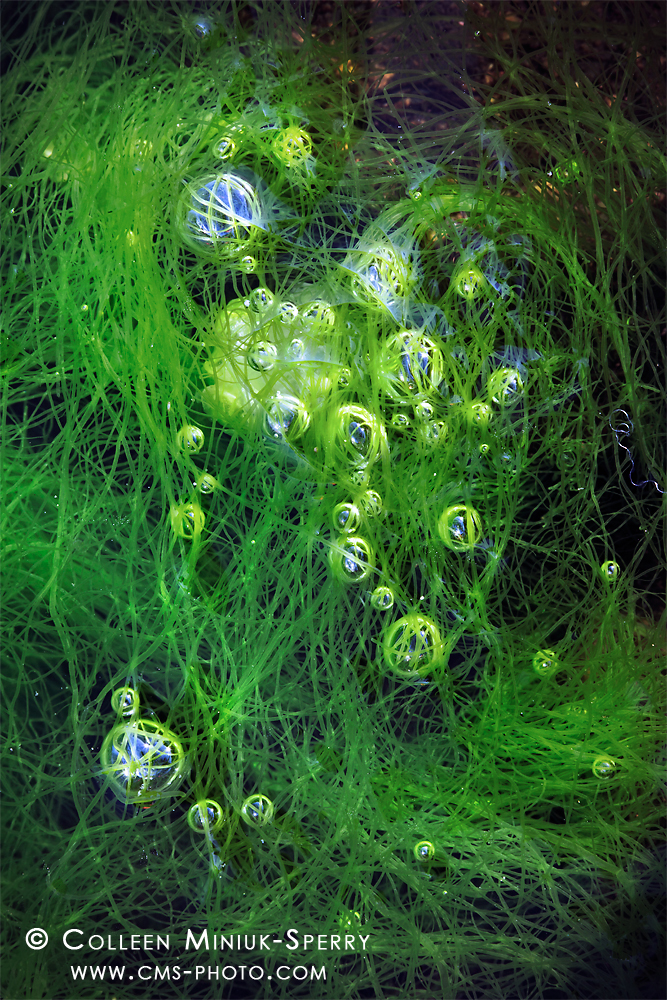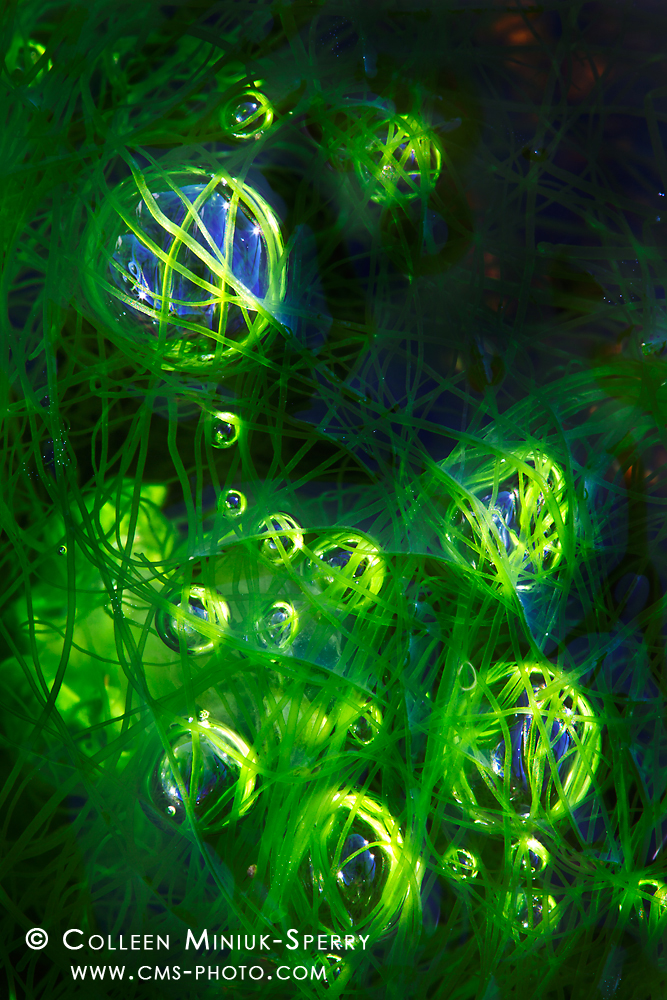
“Another World,” Eben’s Head Trail in Acadia National Park, Isle au Haut, Maine (Prints available for purchase – click on photo to order!)
NOTE: This blog entry will appear in our new book, Photographing Acadia National Park: The Essential Guide to When, Where, & How as “Behind the Photo #12: Looking for Answers.” In addition to this post, I’m featuring 11 additional behind-the-scenes stories from my experiences in the park. If you’d like to pre-order a copy, head over to our Indiegogo campaign at www.indiegogo.com/projects/photographing-acadia-national-park-book until November 30, 2013. Thanks for your interest and support!
Looking for Answers
“There’s more than one right answer.” ~DeWitt Jones
Gaelic Storm–a Celtic band which makes toe-tapping, knee-slapping music I enjoy tremendously–produced a song titled, “Don’t Go for the One.” The lyrics tell of a gentleman going to buy snails to impress his house guests, but gets talked into having a single beer at the bar. One brew becomes two, three, four, and what was supposed to have been a quick chat turns into an all-night event. As the title and chorus hilariously suggests, one should not expect to enjoy only one beverage with your friends.
While it may seem like a stretch, this philosophy can apply to photography as well. Don’t go for the one photograph!
Very rarely am I fortunate enough to get everything to come together perfectly in a first frame. Even after I have spent ample time observing, analyzing, and visualizing an intriguing subject to define a clear vision, more often than not, I will also explore the scene through recording a series of frames with my camera.
Assuming the lighting conditions are not changing quickly, I contemplate an abundance of “what if” scenarios to determine how I will accomplish recording my visual message before snapping the shutter. What if I only included this section of the scene? What if I positioned my camera lower to the ground? What if I used side light instead of backlight? What if, what if, what if? I continue tapping into this iterative evaluative process as I begin photographing, as it helps me refine what my eye is seeing and how to share that through a photograph.
Not only does this process enable me to achieve my creative vision, but it also helps me fully appreciate the subject from a variety of perspectives and find the many right answers a scene possesses, as Dewitt Jones’ quote suggests. If I have spent the time and money to travel 3,000 miles (4,828 km) from Arizona, hopped on a passenger-only ferry to the remote Isle au Haut, biked six miles along a bumpy, single track dirt road, and then walked a mile uphill with a heavy camera backpack to get to a location, you can be sure I am not going to snap only one photo and head home. Instead, I want to challenge myself to see how many right answers I can discover.
On the first day of our visit to Isle au Haut, my parents and I ventured to the Eben’s Head Trail well before sunset to allow extra time for wandering and discovering along the unfamiliar trail. After a short meander through the forest, we emerged on the rocky coast and scrambled to the top of Eben’s Head, where a breathtaking 180-degree panoramic view of the isle’s western shoreline and open waters of Isle au Haut Bay greeted us. We noticed the receding tide leaving behind small tide pools on the volcanic ledges surrounding the cobble beach directly north of our perch. Eager for a closer look at the momentary glimpse into the typically hidden ocean world, we hiked the short distance to the seashore.
After only a few seconds of exploring, the fine, hair-like seaweed floating in the tide pools fascinated me. A few steps ahead on the black boulders, my mom, Jacque, spotted a slightly larger saltwater puddle and called to me, “Hey Colleen, you have to see these bubbles!”
When I gazed into her find, I did not just see tangles of seaweed and floating bubbles. The scene immediately transported me to outer space, where planets swirled in a distant galaxy. I knew I had to create an image of precisely that subject!
I walked around the small pool to begin the visualization process, first noticing how the backlight from the late afternoon created a dark backdrop in the deep pool. Then, I settled on a vertical orientation based on the bubbles’ arrangement. I knew I needed to keep my lens (positioned to look down upon the scene) parallel to the surface of the water so that the face of the bubbles and the top layer of seaweed remained in focus. A small aperture on my 100mm macro lens would provide the depth of field necessary for my tight composition. I needed to remember to twirl my polarizer to get just enough reflected light on the water, but not so much that it overshadowed the primary scene.
With this vision in mind, after diligently setting up my composition and exposure, I snapped the frame and immediately reviewed the image on the back of my camera’s LCD. Shockingly, on the first try, I managed to record an image that matched my vision–a right answer!
Despite being pleased with my first snap, I continued exploring the scene for 45 more minutes. After a number of frames, I picked out an odd reddish tint occurring across the image. It was the reflection of my red jacket! I experimented keeping the extra color in the frame by hovering over the scene. I also eliminated it by stepping a short distance away from the scene and triggering the shutter with a cable release. Contrasting with the rich greens and blues, the additional color made the scene look even more other-worldly–a second right answer!
I tried turning the camera to the left slightly and then to the right slightly, utilizing a Dutch tilt, to play with the composition as the bubbles appeared, disappeared, and then reappeared, changing the visual balance entirely from image to image – more right answers!
Then, I used extension tubes to allow me to get a closer perspective (see the time image titled, “Floating in Time,” at the bottom of this post). I felt the broader perspective better conveyed my initial notion of “planets swirling in a distant galaxy,” but I enjoyed the results of this more intimate view–another right answer!
During the process, I felt my photographic message and my confidence strengthening with each additional frame. Had I gone for “the one” and packed up after my first shot, I would have missed the chance to see all the possibilities this magical scene had in store!
Which of the two images presented here do you prefer? Why? Remember, there are many right answers so share your thoughts in the Comments below!


Great find and amazing pictures. I do like the first one best. I like that there are more bubbles and they are further away. The second image is a little too close-up for me.
If conditions allow, it’s always nice to really explore a subject.
Have Fun,
Jeff
Thanks for your comments, Jeff! I agree, it’s much nicer to explore a subject when it’s sunny (and not dumping rain!) 😀
These are amazing Colleen! My all time favorite images of yours! I prefer the 1st, because the forms of the seaweed greens are more apparent, adding another layer of interest. I think it would work really well as a large print.
Aw shucks, thanks Floris! Coming from you, that means a lot to me! One of the things I liked best about the first one was the swirling seaweed almost embracing the bubbles. But then I shot the second one and loved the shape of the bubbles…so I guess I’ll keep them both! 😀
Hi Colleen,
Another fantastic shot that looks “out of this world”. I kept thinking strands of plastic, xmas ornaments, not much of a clue as to how this was taken, until I read the above. I’m blown away by these shots…they would make a great Xmas Card !
But I’m still not clear as to how this happened….I can see macro lens and extension tubes.
So did you move your polarizer at the time of one shot to get the swirls? I’m still not clear on how that happened unless the bubbles were in a swirl or current flow.
You mentioned that you then stepped away (so on a tripod?) and set of the shot with the cable release. What are the orange looking dots or shades of light on the RHS?
To answer your Q about which I like better – they are both fantastic – the first one has a lot of fluidity and movement in it, but I find my eye darting around to take it all in (not because it’s a bad picture but because there is so much to focus on). The second is tighter, more focused, larger, I love the electricity of the large blue bubble on the LHS. They are both great shots!
Now Santa can I get a mind that thinks like Colleen???
Hahaha! Thanks, Carol, for your wonderfully kind comments! I love hearing about all the things you think of when you look at the images and your insights into why you like both images. I hadn’t considered Christmas ornaments, but YES! 😀
To answer your questions:
1. The swirls are strands of seaweed sitting in a stagnant pool of water on top of a rock – the seaweed wasn’t moving. The bubbles were floating on top of the strands of seaweed (and originating from air pockets in the dirt underneath the seaweed in the tidepool).
2. Twirling the polarizer either darkened or lightened the surface of the water. I did not move the polarizer during the exposure.
3. The orange dots are the reflection of my red jacket. (The blue and white is the sky’s reflection). I was shooting directly on top of the scene.
Hope that helps, thanks again!
Colleen
Brilliant Colleen thanks for the detailed breakdown…..now I understand 🙂
Merry Christmas and continued success in 2014!
[…] Park, Maine (October 2013). Read the story behind the photograph on a previous blog post about “Making the Image: Another World and Floating in Time.” “Another World,” Isle au Haut, Acadia National Park, Maine (Prints available – […]
I prefer the second image! It looks absolutely otherworldly! 🙂
Thanks for chiming in, Isabel!